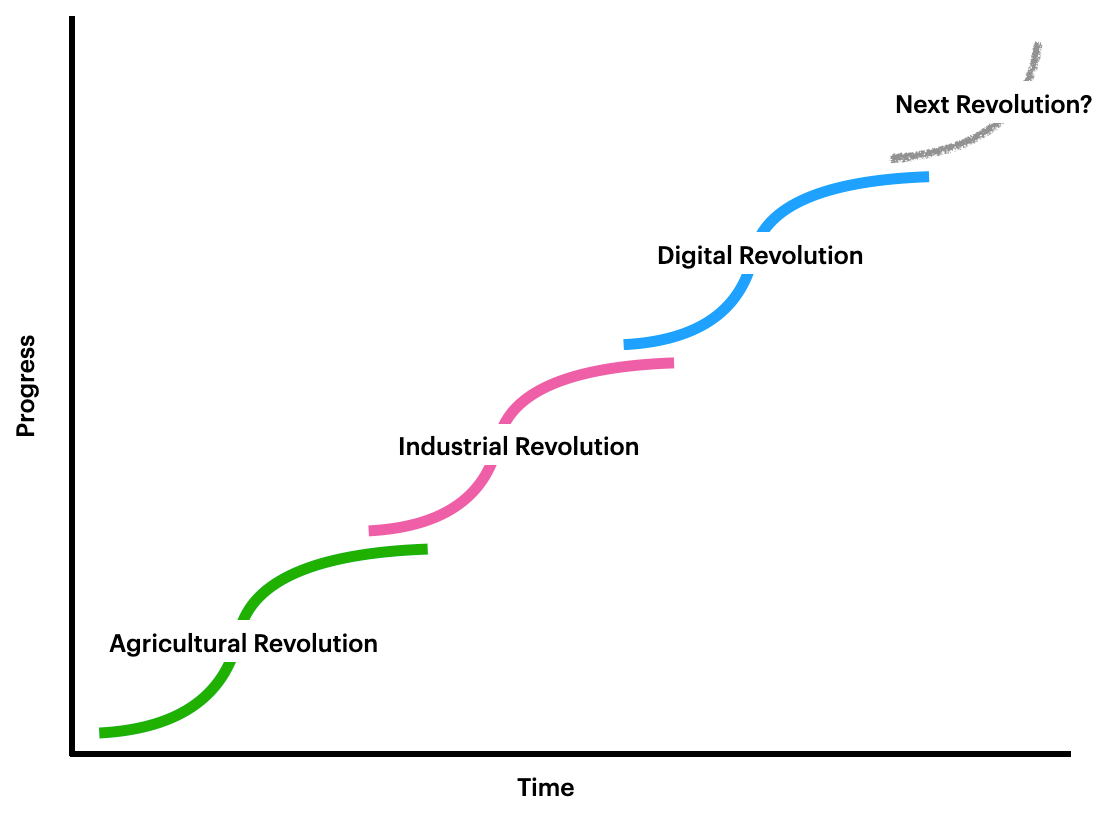Beyond the Plateau of Innovation
As the tech sector hits a growth plateau, radical changes are needed in the industry's innovation and funding model.

2022 was a rough year for the global economy, but it was a particularly humbling one for the tech industry. After twenty years of exponential rise, spurred by innovation and mass adoption of new technologies, the tech sector's non-stop growth story is now reaching a plateau.
Admittedly, the biggest contributor to the tech sector's slowdown has been the recent change in interest rates and the subsequent bursting of the tech stock bubble that was created during the COVID-19 pandemic.
However, beyond the stock market's revaluation of the tech sector, a more significant shift is also taking place.
For over two decades, the VC-funded model of tech innovation has focused exclusively on achieving investment returns, increasing monetization, and capturing market share with products. We are now at a point where consumers have reached saturation with the constant barrage of products, and our society as a whole is starting to experience the unintended side effects of unbridled growth.
I firmly believe in the capacity of technological innovation to solve problems and improve our lives. But, unchecked innovation and the ruthless pursuit of growth also have the potential to create new unanticipated problems and set back progress.
- The Internet revolutionized the connectivity of our world and fuelled the wave of 21st-century globalization, but this has also created massive inequalities and given rise to a polarized world where geopolitical and economic forces are now pushing us in the opposite direction.
- Smartphones entered our lives as magical devices that put the power of personal connectivity and countless digital tools at our fingertips, but their addictive habit-forming features are now causing screen overuse, digital fatigue, and adverse impacts on our physical and mental health.
- Social Media was life-changing when it started as a digital network connecting us to friends and communities, but it has now turned into an algorithm-driven value extractive tool that harvests our personal data for the sake of ad placements and other monetization tactics.
- Digitization of media disrupted the centuries-old publishing industry and changed how we consume content and share information on a daily basis, but digital media has also become a mass channel for distributing manipulated content, fake news, and disinformation.
- eCommerce gave us the convenience of shopping for everything from "A to Z" right from our couch and forever changed our relationship with in-store purchasing and brick-and-mortar retail, but it has also destroyed local economies, ruined small businesses, and stifled healthy competition.
- AI and Robotics have provided quantum leaps in human productivity and revolutionized work in multiple industries, but these technologies are facing increasing pushback and criticism for their role in replacing humans, eliminating jobs, killing creativity, and creating inequality.
Clearly, this list is far from complete, but it should be enough to make the point that we can no longer use short-term investor returns or the promise of innovation-driven disruption to disregard our responsibility to put human, social, and environmental considerations at the center of technological progress.
It is time to rethink how we fund tech innovation, commercialization, and growth. We need new measures of success that go beyond financial ROI and instead prioritize long-term sustainability and responsible stewardship of disruptive digital innovations and technologies.
As innovators, entrepreneurs, and investors, it is our collective responsibility to create and test new models to fund technological innovations that serve the public interest. Academic and Non-Profit institutions need to step up and play a leading role in shaping technological innovation for the coming decades.
By putting in place the right incentives, organizational structures, and funding support, we should be able to harness the mind and energy of innovators towards solving the biggest existential challenges of our times: climate change, healthcare, economic inequality, and access to essential services, education, and clean energy.
Against the backdrop of chaos experienced by the tech sector in 2022, this new year should be a period of reflection and redirection. This should be the year when we finally reinvent how tech's innovation engine is funded, incentivized, and commercialized.
With the right innovation engine in place, it's only a matter of time before we embark on the next technology revolution that will reshape our world.
